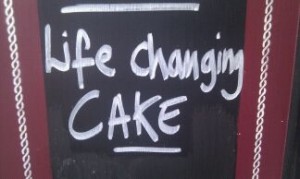 At the venue where I am rehearsing this week, my eye is caught by a postcard advertising a concert by a singer I don’t know. On reading the accompanying blurb, I discover that she is not only the “highest” soprano in this country (BVA proven, no less) but she has, apparently, “quite literally stopped people in their tracks” with her performances.
At the venue where I am rehearsing this week, my eye is caught by a postcard advertising a concert by a singer I don’t know. On reading the accompanying blurb, I discover that she is not only the “highest” soprano in this country (BVA proven, no less) but she has, apparently, “quite literally stopped people in their tracks” with her performances.
I decide to investigate further.
The postcard gives a web address where I am to find biogs of the other performers involved and further information. In fact it is just a duplication of the information on the card, with no biogs or anything else.
Frustrated that the website doesn’t tell me anything I didn’t already know, I start Googling.
I want to stress at this point that I am not trying to be mean about this particular individual. I found her on YouTube and it’s clear the girl can sing. However, I am surprised at her approach to marketing herself and her concert: this is one of the aspects of running a career which the Singing Entrepreneur seeks to explore in detail and about which I feel very strongly.
Whatever we promise, we have to be able to deliver, whether it’s simply some more information or, in this case, the never-to-be-forgotten musical experience promised by the accompanying text.
The postcard invites me to spend over £30 on a ticket and lists various favourite soprano arias that I can expect to hear with piano at the concert. Thanks to London’s rich musical life, I can hear some of the world’s finest opera singers perform these with orchestra for similar money, so I would like some kind of reassurance before shelling out. Unfortunately, none of the sound clips I can find of this soprano is of anything like this kind of repertoire. So all I have to go on, as a potential punter for this concert, is a series of extravagant, unattributed claims about this singer whose work I do not know. It’s possible that I am not the target audience but, given that someone went to the trouble of leafleting my rehearsal venue, I assume the promoters are hoping for more than just friends and family.
So what is appropriate self-advertising? It’s very hard to write one’s own marketing puff, and lots of singers and agents take refuge behind a list of roles and repertoire rather than risk being accused of exaggeration. It’s one thing to put a positive spin on a particular piece of work that might not have been quite so brilliant in reality but something else entirely to use words like “extraordinary” and “effortless” about our own performance. Unless we are able to pin such comments to a review or reviewer, we might as well have made them up and anyway, shouldn’t such hyperbole be reserved for the genuinely awesome Pavarottis and Netrebkos of this world?
I applaud the initiative of organising and publicising this concert and I think it usefully highlights a problem that the independent singer has to confront regularly. Namely, how to promote oneself truthfully and to best advantage, while trying to attract the attention of new audience members, which perhaps requires something more eye-catching. If we look at our own publicity from the point of view of someone who doesn’t know us, we can get a better idea of whether it is compelling and believeable. Referring people to a website for more information is great, as long as the information is there and, if we don’t already have high-level visibility/audibility in the profession, we need to give examples of our work that people can listen to.
Sorry. On the basis of the postcard I am holding in my hand right now, I’m afraid I won’t be buying a ticket.